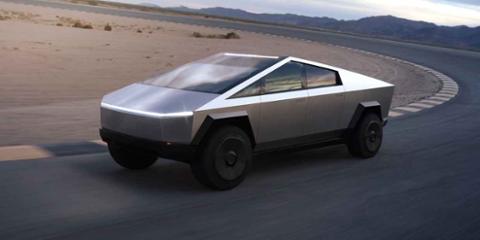
It’s not every week that some of the biggest names in tech—specifically the CEOs of Amazon, Facebook, Apple, and Google—end up on the same forum together, but that’s exactly what happened. And that’s just one item in what turned out to be a pretty full week in tech. Let’s get to it:
Big Tech Gets Grilled
Amazon CEO Jeff Bezos, Facebook CEO Mark Zuckerberg, Apple CEO Tim Cook, and Google CEO Sundar Pichai all testified (via Zoom) before Congress on July 29. All faced questions about whether their respective platforms were anti-competitive monopolies; all tried to suggest that their enormous firms were actually scrappy competitors at risk of failure at any moment.
Out of the four, Tim Cook arguably faced the least scrutiny (at least in terms of questions asked), although he did tackle some queries about Apple’s privacy and App Store policies. Pichai, as you might expect, had to handle questions about the political neutrality of Google’s search results. Zuckerberg swiped back at congresspeople’s assertions that he had purchased Instagram and other startups in order to rid Facebook of rivals—a potential violation of anticompetitive statutes.
Bezos, meanwhile, spent the first 90 minutes of the session in silence, occasionally chewing snacks, as lawmakers focused their fire on the other CEOs. When the time came, though, he had to defend some of his company’s practices, including whether his employees had ever leveraged third-party seller data for extra competitive advantage.
"I can't answer that question yes or no," Bezos told the audience. "We have a policy against using seller-specific data to aid our private label business, but I can't guarantee you that that policy has never been violated." (As you can see from the above image, Bezos has a... pretty normal-looking office for the wealthiest guy in the world.)
Despite lawmakers’ insistence that all these big tech companies engaged in anticompetitive behavior and political bias, it remains to be seen whether there will be any real consequences on the legislative front.
Elon Musk Fears Google A.I.
There must be many things that keep Elon Musk up at night, from how many vehicles roll out of Tesla’s factories to whether SpaceX will actually achieve its longest-term mission of sending people to Mars. A new interview in The New York Times, though, reveals another worry on Musk’s mind: malicious A.I., specifically the A.I. system developed by DeepMind, a subsidiary of Alphabet, Google’s parent company.
“Just the nature of the A.I. that they’re building is one that crushes all humans at all games… I mean, it’s basically the plotline in ‘War Games,’” he told the paper.
For those who’ve never heard of DeepMind, it’s an incubator for A.I. research that’s famous for two things: bleeding cash (it lost $571 million in 2018, according to reports) and crafting A.I. products capable of playing and beating humans at various games. Alphabet has been public about its intentions to integrate DeepMind’s advances into everything from Google’s search business to Waymo’s autonomous driving platform, but much about these projects remain under wraps.
Musk is infamous in Silicon Valley for his fear that A.I. will eventually become so smart to poses a serious threat to the human race. And he might have a point, but at this juncture, the most he probably has to fear from DeepMind is getting beaten at Go.
Face Masks Wrecking Facial Recognition
A new study from the U.S. National Institute of Standards and Technology (NIST) has found that wearing face masks will spike the error rate of facial-recognition algorithms. Depending on the color and shape of the mask, as well as other factors, the error rate could be anywhere from 5 percent to 50 percent.
“With the arrival of the pandemic, we need to understand how face recognition technology deals with masked faces,” Mei Ngan, an author of the report and NIST computer scientist, told The Verge. “We have begun by focusing on how an algorithm developed before the pandemic might be affected by subjects wearing face masks. Later this summer, we plan to test the accuracy of algorithms that were intentionally developed with masked faces in mind.”
Whatever the results of that future testing, it’s clear that the COVID-19 pandemic could complicate tech firms’ plans to make facial-recognition software widespread. If you’re fearful of mass surveillance, this is likely a good thing.
Have a great weekend, everyone! Remember to stay safe!


